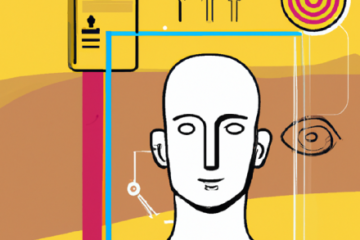Michael Hinshaw: The Upside of Better Customer Experience in a Down Economy
VOICE OF EXPERTS
The Upside of Better Customer Experience in a Down Economy

No matter where you live, there’s not a lot of upbeat coverage in the media today. COVID-19 statistics and related trends, business closures, social distancing woes, stock market gyrations—it feels like much is out of our control.
And while that may be true, it’s important to recognize that your customers feel the same way. Which is why a focus on customer experience (CX) is potentially more important now than ever. Because not only is CX in your control, you can use it to help your customers feel more in control too.
Since we’ve almost certainly entered a global recession of unknown duration or depth, keeping your customers close and serving them better will be crucial for not just surviving but for thriving in the months and years ahead.
There are many reasons why the upside for CX improvement makes it well worth the investment. These are 3 of the most compelling…
1. Improving experience sensitizes you to customer wants and needs—recession or not.
Listening to and understanding your customers is a core tenet of CX leaders. But it’s not a one-and-done deal. Today it’s more important than ever to have a finger on the changing pulse of customer perceptions.
Of course, customer expectations change in a down economy; understanding the effects of fast-eroding customer confidence and trust and the impact of emotions on customer relationships is crucial to addressing changing customer wants and needs.
And in this economy, it’s not just about money—a massive societal shift to “digital first but digital only” is rapidly accelerating technology adoption.
Of course, this shift spells opportunity as well. Consider the 2008 recession, and how it challenged many businesses. Though retail sales got hit hard, Amazon was an exception. Though just gaining momentum when the recession hit, Amazon’s business model focuses on the customer first. By understanding their customers wants and needs, they thrived and grew in the last downturn—just as they appear to be thriving and growing in this one.
Target—a U.S. based retailer ranked 38 in the Fortune 500—is another example. By listening to their customers, Target expanded into new segments like food and grocery, teamed up with designers to create unique differentiated products and boosted sales and marketing investment by 20%, driving sales growth by 40% and profits 50% over the course of the recession while competitors floundered.
Building the “customer listening muscle” will attune you to changing customer wants and needs to thrive today, just as it will give you the knowledge you need to rapidly accelerate out of the downturn tomorrow.
2. Improving customer experience differentiates your business from competitors.
When it’s easier than ever for digitally-savvy customers to move from one company to another, standing out from the competition in ways that are relevant is important. It’s not the easiest thing to do, though.
For example. we’ve all received that email blast essentially saying, “We’ll get through this crisis together. We care about you! Please keep buying our products.” But do you remember which companies sent those? Do you care? Probably not. I don’t.
The companies you do remember are those whose actions match customer needs in the current reality: stores like Costco and Walmart opening early for senior citizens, education platforms offering free learning material, and internet providers giving free wi-fi to students.
Those companies are improving their customers’ experience, and they’re standing out. The same thing happened during the great recession as well. Best Buy (#75 on the Fortune 500) avoided thelast retail apocalypse by embracing a customer-centric strategy, asking customers what they wanted—then listening and taking action (work they are still doing today).
Sure, convenient delivery and affordability were on the list. But customers also craved guidance (What computer was best for college? Which phone had the best front-facing camera?) and hands-on help (Why didn’t my printer work…again? How do I fix my laptop?). Best Buy differentiates themselves by identifying and giving customers what they need—things like hands-on help and services like installation— in ways their online-only competitors cannot.
3. The right customer experiences drive loyalty.
Companies like Best Buy, Costco and Target have been around a while. Target has such a loyal customer base that the Internet is populated with memes about “Target withdrawals.” The employee in khakis and a blue polo shirt has become synonymous with tech shopping advice.
These companies and other like them have survived and thrived because they’ve long known something that COVID-19 is forcing many companies to confront today: that customer loyalty is a two-way street. And what’s critical for business to understand is that giving your customers the experiences they need directly drives greater customer loyalty. In fact, companies that consistently offer best-in-class customer experiences tend to grow faster and more profitably—in no small part because greater customer loyalty means they’re 80 percent more likely to retain their customers.
Though the ‘right’ customer experience might mean something different today than it did in 2019, what customers want from companies today isn’t radically different than it’s ever been: “know and understand me and my needs, and show me in ways that are meaningful to me.”
Which is why it’s time to understand your customers better so you can better empathize with them and move well beyond generic messaging and disingenuous condolences.
The good news for any company is that the ‘loyalty-building muscle’ that a focus on customer experience helps to drive is one that will create loyal customers both through and beyond this current crisis.
As hard as it is to see from where we sit today, it is important to remember that we and our economies have weathered recessions before, and on that point (if no other) this one will be no different. But as with every disruption, there will be winners and there will be losers—with customer-centric companies landing in the winner’s circle time after time.
Michael Hinshaw is the founder and president of McorpCX, independently recognized as a top customer experience services and solutions company, enabling experience-led business success since 2002. Called a “CX industry pioneer”, he is on multiple “Global CX Thought Leaders to Watch” lists and a co-author of the best-selling book Smart Customers, Stupid Companies: Why Only Intelligent Companies Will Thrive, and How to Be One of Them. Hinshaw is also a mentor and teaching fellow at UC Berkeley’s Haas School of Business in California.
McorpCX: www.mcorpcx.com
Connect with Michael Hinshaw on LinkedIn: www.linkedin.com/in/mhinshaw


